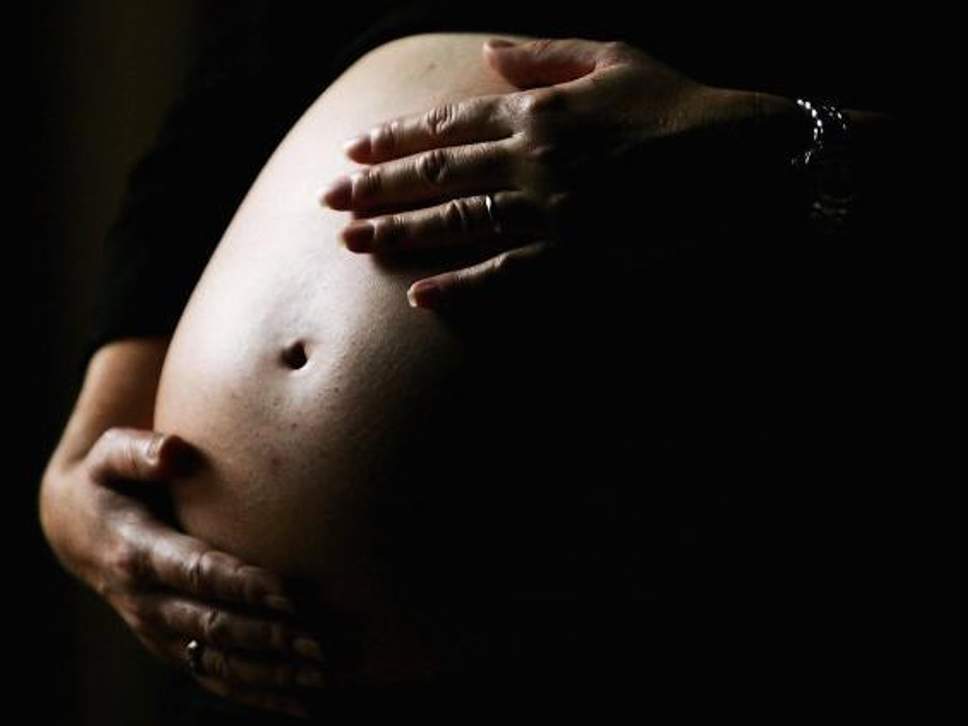Pregnant women are being kept in jail despite the risk to their lives – and their babies
The Ministry of Justice is putting the health of very young children in jeopardy and forcing a wedge between incarcerated mothers and their children living on the outside, says Louise Tickle


Amid the thousands of desperately sad stories about people dying from Covid-19, those where pregnant women have lost their lives prompt an added sense of grief.
These particular deaths mean babies will never feel the warmth of their mother’s skin, never blossom under her encouragement, never feel the fierceness of her love. The survival – so far – of these women's newborn babies is a blessing, but the impact of losing their mothers will inevitably be lifelong.
Given it is obvious that prisons are environments where the virus can spread rapidly, why, therefore, have only 17 pregnant women in custody been released?
Despite promising the temporary release of 4,000 inmates last month in an attempt to reduce the infection rate, an early administrative error by the Ministry of Justice which resulted in six mistaken releases of low-risk prisoners – all of whom are now back inside – has meant that not a single eligible person has since left jail.
When asked in parliament last week, the Lord Chancellor Robert Buckland could not even give a figure for the number of pregnant women still incarcerated, indicating only that it was “about 70”. Compounding this display of ignorance, neither could he say how many babies and toddlers are currently in prison with their mothers (children born to prisoners may live with them until they are 18 months old). It would appear that the government has not even bothered to assess the scale of the risk it is requiring this particularly vulnerable group of women, children, and unborn babies to bear.
Add to this the fact that prisons in lockdown no longer allow family visits, and have abruptly stopped resettlement day-release schemes, and it is obvious that many children who were regularly seeing their mothers in prison, or spending time with her at home, are now bereft of any parental contact at all.
Yesterday, a grandmother currently looking after her daughter’s five children told me that they had not seen their mother, who is incarcerated for a non-violent crime, for seven weeks. Before lockdown, she had been coming home for five days a fortnight. So on top of the disruption of school closures and lockdown, the siblings, aged from 15 to just six, have in the words of their grandmother "had their lives turned upside down”, and are now manifesting various signs of distress.
At Oxford University’s Centre for Criminology, Dr Shona Minson, who researches maternal imprisonment from a child rights perspective, argues that the risks posed by Covid-19 should change sentencing for convicted women who are pregnant or have children.
Guidance states that judges must take account of the wellbeing of dependent children when they decide whether convicted primary carers should be in custody or given a suspended sentence. But most women now in prison were sentenced at a time when it would have been assumed their children would be able to see them. They would not be locked in their cells for most of the day, and their children wouldn’t be at risk of losing their mother to Covid-19.
The coronavirus pandemic and lockdown has utterly transformed the context for policy decisions throughout society. No judge should be sending a child’s primary carer to prison right now, except in the most exceptional circumstances. The same goes for decisions about remand and for recall to prison if a primary carer breaches their license conditions.
Meanwhile, pregnant women and mothers in prison are the obvious first candidates for early release. By keeping expectant mothers in prison, the Ministry of Justice is unnecessarily risking their lives and those of their unborn babies. It is also putting the health of very young children living in prison alongside their mothers in jeopardy, and risking the wellbeing of children who live on the "outside" who may never see their mother again if she contracts Covid-19 in prison and dies.
This is an easy decision to make, an easy population to monitor and, at a time of relentless misery, a simple and effective and positive policy. The government can and should do it now - or it risks being the architect of more tragedies that needlessly devastate young lives.
Join our commenting forum
Join thought-provoking conversations, follow other Independent readers and see their replies
Comments